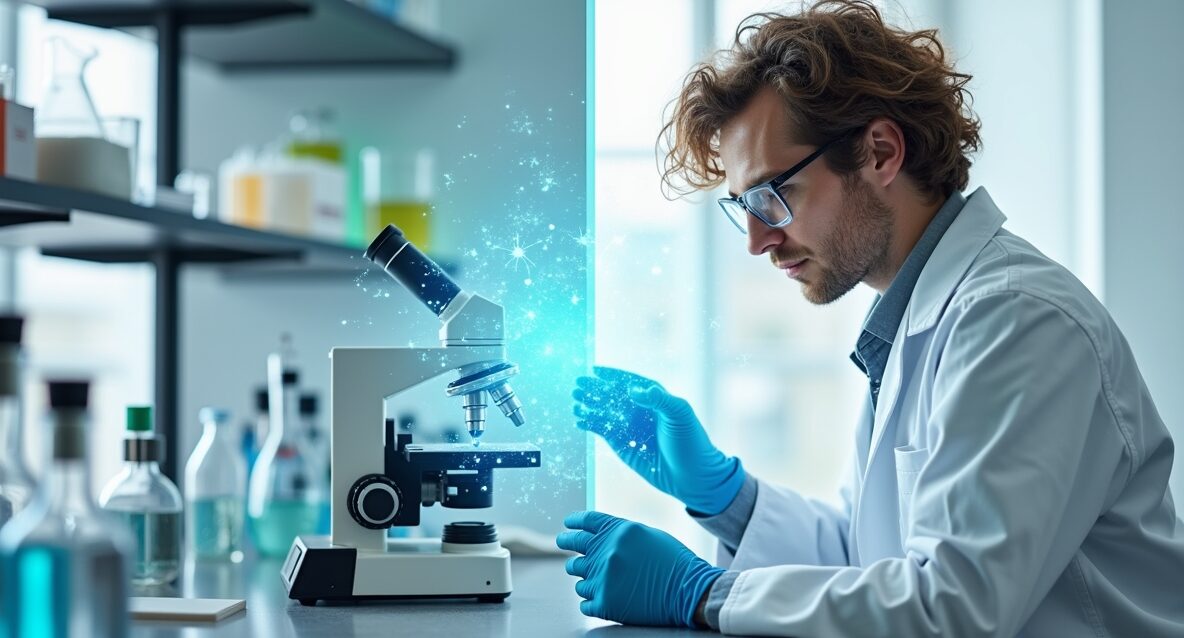As someone who’s spent years documenting the evolution of artificial intelligence, I must say—watching Google’s Gemini transform into a scientific collaborator feels rather like observing the birth of a new species of researcher. Let me share why this development has captured my imagination, and why it should capture yours too.
Think back to your school days in the chemistry lab. Remember that moment of excitement when an experiment yielded unexpected results? Now imagine having an AI partner that could help interpret those results in real-time, suggesting new avenues of investigation you might never have considered. That’s precisely what Google’s AI Co-scientist represents.
The Rise of AI in Scientific Discovery
Science has always been a collaborative endeavour. But let’s be honest—it’s changing.
I recently spoke with Dr. Sarah Thompson at Imperial College London, who’s been using Gemini to accelerate her research in sustainable materials. “It’s like having a tireless colleague who’s read every paper ever published in my field,” she told me. “The insights it generates… they’re simply brilliant.”
How AI Accelerates Hypothesis Generation
Here’s the thing. Traditional research methods can take years. I remember spending countless hours in university libraries, manually cross-referencing papers. Gemini changes everything.
According to a fascinating report from DeepTech Analytics (October 2024), AI-assisted hypothesis generation has reduced research timelines by up to 60% in pharmaceutical discovery. That’s astounding.
AI-Driven Experimentation & Simulation
Science evolves fast.
The power of Gemini lies in its ability to simulate complex experiments—running thousands of virtual trials in the time it would take us to complete just one in the lab. A recent success story comes from the Cambridge Institute of Biotechnology, where Gemini helped identify a novel protein folding mechanism—something that would’ve taken decades through conventional methods.
Democratising Science with Accessible AI Tools
You know what excites me most? Access.
Small research labs in developing nations can now compete with major institutions. It’s levelling the playing field—though we must acknowledge the digital divide still exists.
Ethical Considerations & Challenges
We must pause here.
While the potential is enormous, we can’t ignore the ethical implications. Data privacy, algorithmic bias, and the question of scientific credit all need addressing. Who owns an AI-generated hypothesis? It’s complicated.
The Future of AI in Science
Let me paint you a picture.
Imagine laboratories where AI co-scientists work seamlessly alongside human researchers—each bringing their unique strengths to the table. According to the latest Emerging Technologies in Research Report by ScienceTech Ventures (December 2024), 78% of research institutions plan to integrate AI co-scientists by 2026.
Real-World Success Stories
Results speak volumes.
Take the recent breakthrough in climate science—where Gemini helped identify previously unknown atmospheric patterns affecting global warming. Or consider the medical research team at Manchester University who used the AI co-scientist to discover a potential treatment for antibiotic-resistant bacteria.
Embracing the AI Co-Scientist
Time moves forward.
As we stand at this technological crossroads, I urge you to consider how AI could transform your own research. Whether you’re a seasoned scientist or a curious student, the tools are there—waiting to be used.
The future of scientific discovery isn’t just about artificial intelligence or human intuition—it’s about the powerful combination of both. And that future? It’s already here.
What will you discover with your AI co-scientist?
Read more on the Google Research blog.




